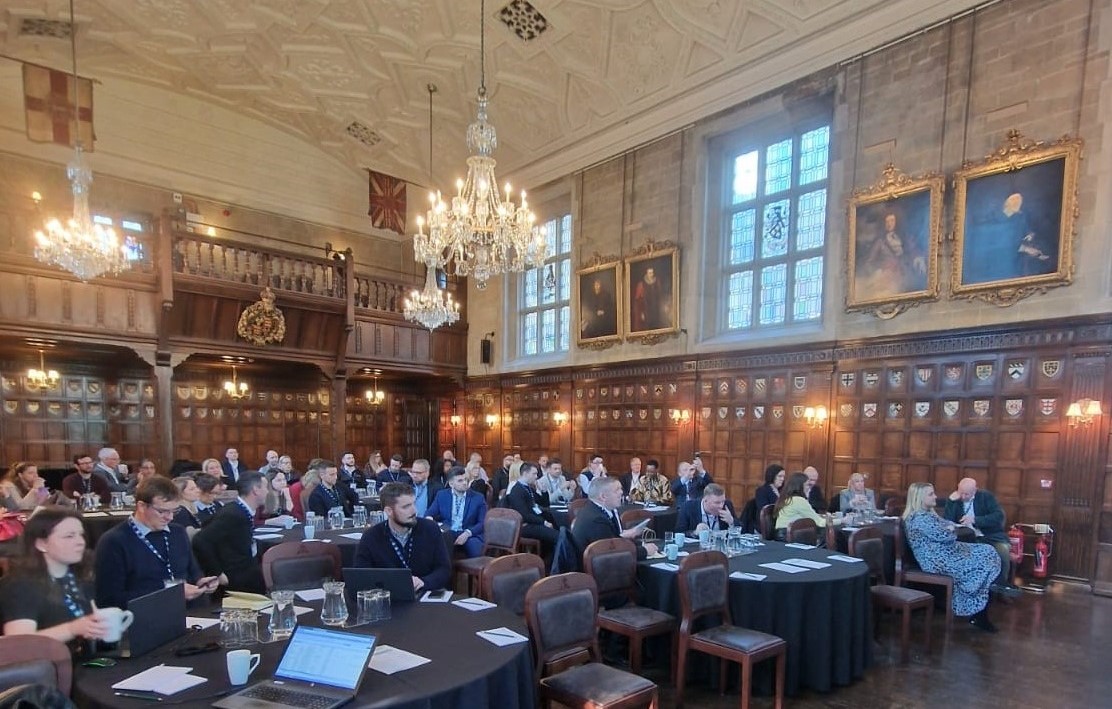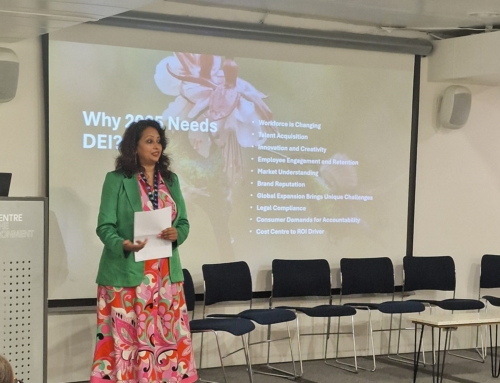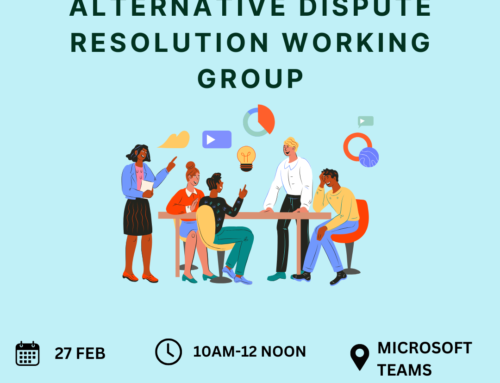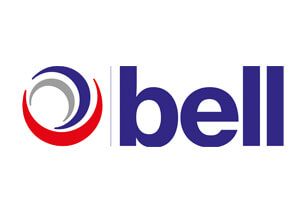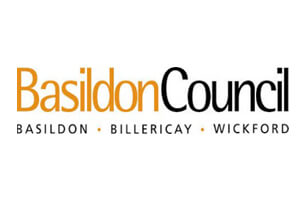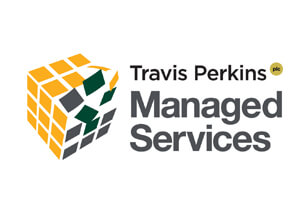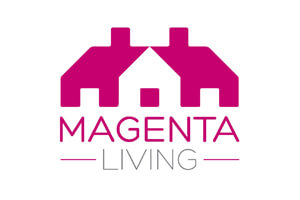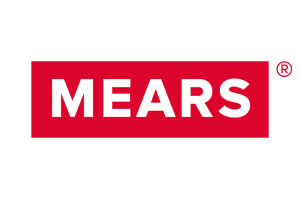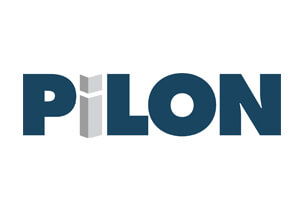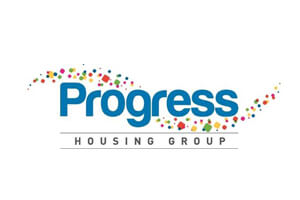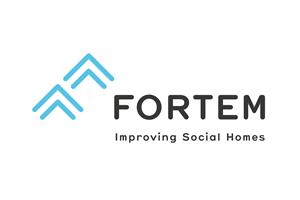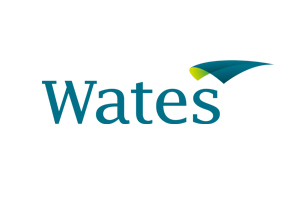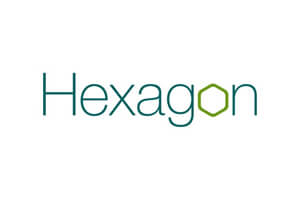AMIP: From Employment Law to changes to the new procurement landscape
The first AMIP meeting of 2025 took place at Ironmongers Hall and explored some of the biggest challenges set to impact the sector in 2025 and beyond, from changes in Employment Law to navigating the new procurement landscape.
Strange Things Happen Every Day
First up was Greg Campbell, Partner at Campbell Tickell, who explored the global and national forces shaping the sector in 2025 and beyond, with “Strange Things Happen Every Day”.
He started by looking at recent events in the USA and the impact on international relationships, before moving on to UK Government policies, including targets to build 1.5 million new homes and to create new towns.
He also covered labour shortages, planning barriers and the rise of AI & tech in housing.
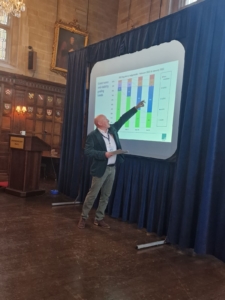
Changes to Employment Law
HR & Change Management Specialist Mandy Fitzmaurice of Purple HR Ltd looked ahead to the changes in Employment Law set to be implemented in 2026.
A new regulatory body, ‘Fair Work Agency’, will be enforcing compliance explained Mandy, as she talked through the impact of changes including the banning of zero-hour contracts in their current form, changes to the minimum wage and age-based banding and flexible working as a default right from day one.
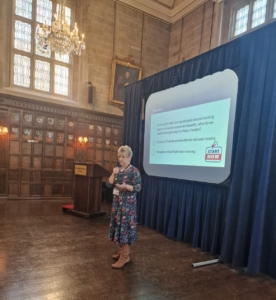
She also outlined proposals for stronger protections for pregnant employees and carers, changes to statutory sick pay, enhanced rights and protections for self-employed people and a review and modernisation of health and safety guidance and legislation
She closed by saying that 2025 is the year to internally review policies, practices, contracts and handbooks and to consider future developments.
Leading by example
Tina Barnard, Chief Executive of Watford Community Housing shared how the organisation achieved the highest regulatory standards of G1, V1, C1.
She talked about the benefits of WCH’s community gateway model, which offers a wide range of opportunities for tenants to influence and scrutinise its strategies, policies and services, and shared insights from its “Big Door Knock” initiative to engage with tenants.
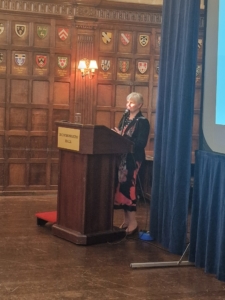
Regulatory compliance is not just a tick-box exercise, she said, it’s about building a culture of transparency, accountability, and customer focus.
A self-aware, learning organisation is better prepared for scrutiny, explained Tina, outlining the importance of data, and why knowing your properties and compliance levels is critical for decision-making and investment planning.
Customer insight drives improvement, she said, and a strong engagement strategy ensures residents have a voice in shaping housing services.
Mental health matters
Caroline Lester, Partnerships Director and Emma Quansah, Head of Partnerships at 4i Solutions Limited led a powerful discussion on how organisations can go beyond policies to create real, lasting mental health support for employees.
They talked about why mental health matters, citing research from Mental Health UK, which revealed that in 2024, 21% of workers needed to take time off work due to stress, making this discussion even more timely.
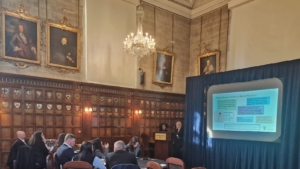
Delegates were asked to pause and reflect, thinking about how whether they feel balance or are overwhelmed and stretched.
Emma and Caroline talked about building a supportive culture, including creating a safe space for discussions around mental health, investing in Employee Assistance Programmes, and encouraging managers to lead by example.
They also discussed recognising the signs of poor mental health, and how to take time to reflect on your wellbeing and prioritise your needs, encouraging a better work-life balance and building an effective workplace wellbeing strategy.
Sustainability in housing
Working towards a sustainable social housing sector in 2025 and beyond was the subject of the second to last session in today’s AMIP meeting, delivered by Sam Travis-Cavell, Head of the Building Environments Team, at Global HSE Group.
He covered why sustainable social housing is important, highlighting issues including rising fuel poverty, increased carbon emissions, ageing housing stock, and the cost-of-living and gave examples of successful social housing projects such as Passiv Haus, BedZED (Beddington Zero Energy Development) and Nottingham’s Energiesprong.
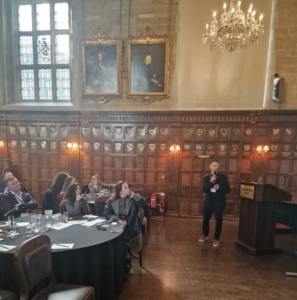
Sam looked at the role of public-private partnerships in improving sustainable social housing and how circular economy principles can be applied to social housing.
He also touched upon modular design and material selection for sustainable social housing and The Future Homes Standard.
Procurement insight
The final session of the day, led by Echelon Group CEO Mathew Baxter focused on the new Procurement Act, offering vital insights for a successful procurement process.
Mathew walked delegates through some of the key changes, covering the new Competitive Flexible Procedure, the process for Open Procurement, including the need for the early development of procurement strategies and the recommended use of preliminary market engagement, as well as post-award transparency and compliance, including new notices and stricter reporting.
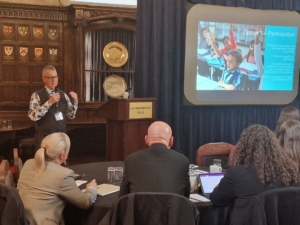
He also looked to the future outlining what the sector can expect in the short and medium term, including a flurry of framework activity, extensions/hyper-extensions of existing contracts an uptick in procurement challenges, a realisation of the value of true market engagement and the development of smart CFP models.
History lesson
There was also a learning opportunity in the lunch break with a talk on the 700-year history of the Worshipful Company of Ironmongers and the hall. Despite its Tudor style the current Ironmongers Hall was built in 1923 after the previous one was destroyed in 1917 by a German bombing raid!
Read next: Equality diversity and inclusion focus for Competency and Conduct event
